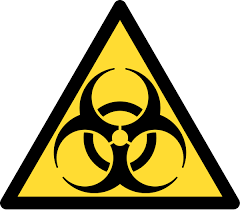 The Lein lab is focused on developing therapeutic strategies for protecting the brain from the neurodegenerative effects associated with chemical-induced life-threatening seizures (status epilepticus).
The Lein lab is focused on developing therapeutic strategies for protecting the brain from the neurodegenerative effects associated with chemical-induced life-threatening seizures (status epilepticus).
This research is part of the UC Davis CounterACT Center of Excellence, which coordinates the development of more effective medical countermeasures to treat individuals acutely intoxicated with chemical threat agents, such as organophosphates, that trigger seizures. As part of this work, we are collaborating with the Center for Molecular and Genomic Imaging to develop quantitative MRI and PET tracers for longitudinally tracking neuropathology and therapeutic effects of candidate countermeasures in rodent models.
Current funding:
Developing Therapeutic Strategies for Mitigating the Chronic Neurological Consequences of Acute Organophosphate Intoxication
U54 NS127758 Lein (PI) 07/01/2022 - 06/30/2027
Current medical countermeasures for acute organophosphate intoxication can prevent death, but are unable to fully protect against the longterm adverse neurological consequences (progressive brain injury, cognitive impairment, spontaneous recurrent seizures) unless administered within minutes of exposure, which is an unlikely scenario in the event of accidental, suicidal or terrorist-related exposures. The UC Davis CounterACT Center of Excellence seeks to identify and develop novel disease-modifying therapeutic strategies that can be administered in hours to months after exposure to delay the onset and/or reduce the severity of chronic neurotoxic effects.
